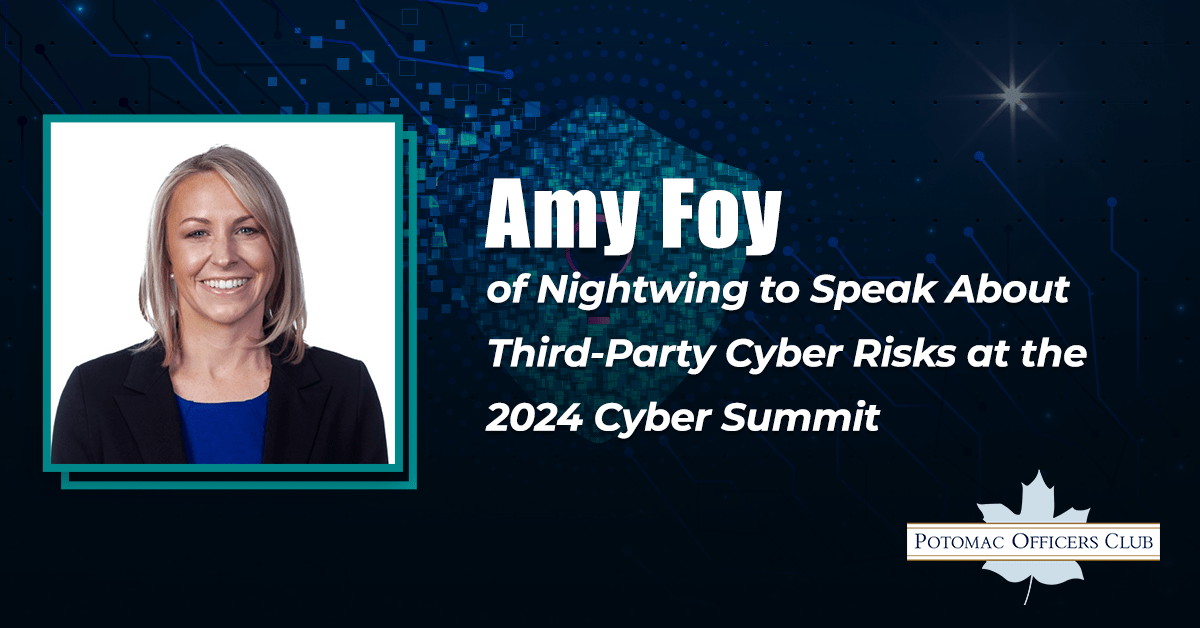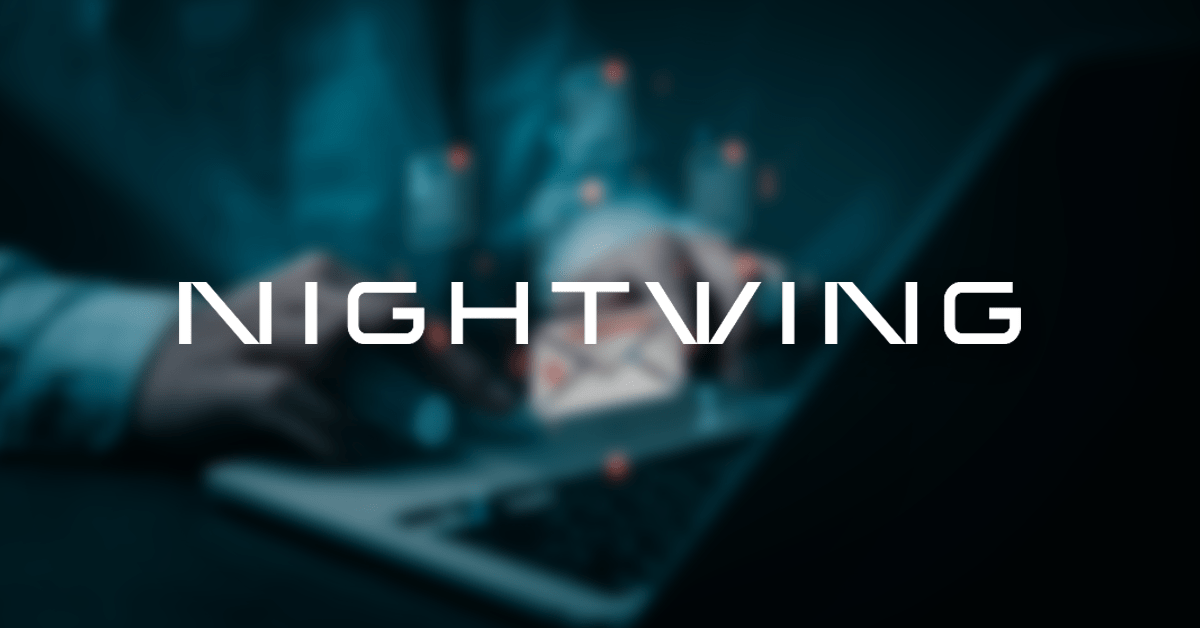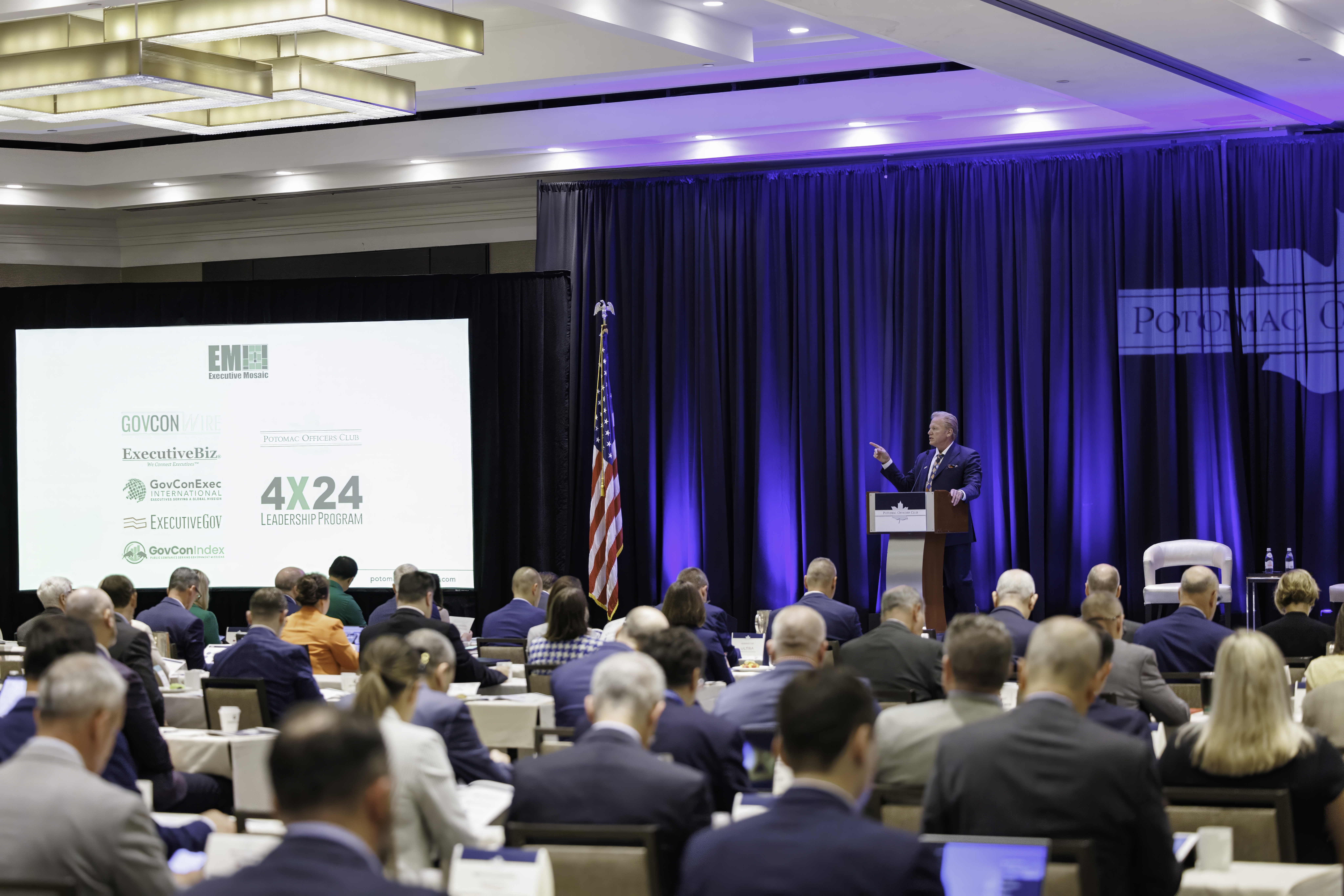
Photo of Amy Foy/ LinkedIn
Nightwing’s Amy Foy to Speak About Third-Party Cyber Risks at the 2024 Cyber Summit
Amy Foy of Nightwing has been handpicked by the Potomac Officers Club to speak on the 2024 Cyber Summit panel, “Third-party Cyber Risk in Public Sector Supply Chain.” Her experience in national and supply chain security has made her a pivotal figure in government cybersecurity.
Learn more about Foy and her role as a panel speaker at the upcoming 2024 Cyber Summit.
Table of Contents
An Introduction to Nightwing’s Supply Chain Lead
Amy Foy joined Nightwing as the vice president of contracts and supply chain in March 2024. She oversees all aspects of domestic and international supplier and customer-related setups.
Foy graduated from Bentley University with a Bachelor of Science in Finance and from Bentley University’s McCallum Graduate School of Business with a Master’s degree in Financial Planning. She is also a certified federal contracts manager.
About Nightwing

Nightwing is an intelligence services company established in 2024. It is led by a team with 40 years of combined experience delivering advanced data operations and full-spectrum cyber services for the federal government’s most crucial missions.
Nightwing is dedicated to staying ahead of national security risks and providing customers with the tools to address them. Its offerings include systems integration, intelligence integration, software modernization, special intelligence missions and offensive cyber capabilities.
Amy Foy’s Professional Background
Foy has professional experience in finance, contract operations and supply chain management. Prior to Nightwing, Foy spent 19 years at Raytheon, where she held various leadership roles in fostering supplier and customer relationships and protecting supply chains.
Earlier in her career, Foy worked at Foster-Miller, a defense and space manufacturing company based in Waltham, Massachusetts. She started as a finance intern and then was promoted to Manufacturing Accounting Analyst.
Amy Foy to Speak at the 2024 Cyber Summit

Boasting a professional career in cybersecurity, contracts and supply chains, Foy was chosen by the Potomac Officers Club as one of the panel speakers at the 2024 Cyber Summit panel, “Third-party Cyber Risk in Public Sector Supply Chain.”
The panel’s main talking points include:
- The positives and negatives of the Digital Accountability and Transparency Act (DATA ACT) of 2014
- The limited visibility into the risk within government contractors and service providers
- How GovCon and service providers risk can be among the lowest-hanging fruit for illicit cyber actors
- How GovCon and service providers’ risks are connected to securing the 2024 election cycle
- How the election vendor ecosystem is overseen by the U.S. Federal Election Commission and contracted by the state governments
Join the discussion on June 6 at the 2024 Cyber Summit to hear Foy’s insights on managing third-party cyber risks in public-sector supply chains.
Related article: 2024 Cyber Summit Highlight: Renee Wynn to Moderate Panel
What Are Third-Party Cyber Risks?

Cybersecurity risks refer to any threats that expose organizations to data breaches and cyber-attacks. When not addressed, these risks may bring devastating consequences, such as financial losses, operational disruptions and reputational damage.
The onset of cyber attacks has compelled the government to depend on third-party vendors for extra layers of cyber protection. That said, third-party cyber service providers, especially those who have access to confidential data, may exploit these data and become a threat to the government.
Some of the most prevalent third-party cyber risks include:
- Ransomware attacks
- Data breaches
- Phishing
- Injecting malware to employees’ emails
- Installation of unauthorized BitCoin operations
- Intellectual property loss
- Geopolitical data exposure
- Supply chain strategy attacks
How Does the Government Mitigate Third-Party Threats?
With imminent threats and vulnerabilities that come with third-party cyber vendors, the United States government has developed measures to mitigate these risks and maintain cyber integrity.
Some of the ways the government deals with third-party cyber risks are:
- Incorporating cyber risk management into contracts
- Keeping an inventory of third-party providers
- Establishing a vendor assessment process to monitor suspicious cybersecurity behaviors
- Implementing risk management programs and multi-factor authentications for fourth-party vendors that third-party service providers rely on
- Deploying multi-layered protection measures against more dangerous cyber attacks
You might also want to read: CISA Reports Progress on Cyber Threat Responses Due to Collaboration, AI & More
Category: Articles




